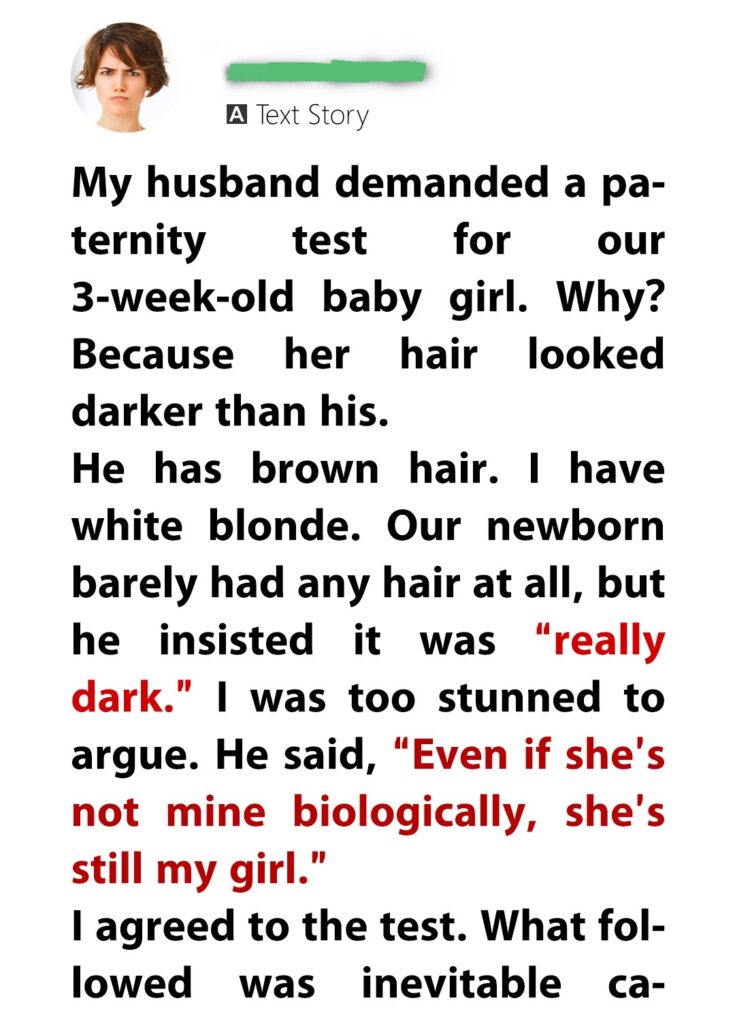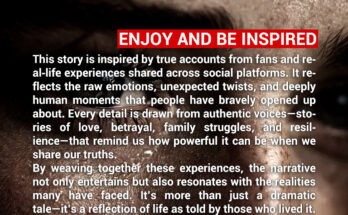Three weeks after giving birth to our daughter Mia, I thought I was living the happiest chapter of my life. Bruce, my husband, had been tender and attentive throughout my pregnancy—assembling the crib, whispering dreams into my belly, and holding my hand through 19 hours of labor. But something shifted the moment he held Mia. His eyes, once full of wonder, dimmed with doubt.
At first, I dismissed it as exhaustion. But his gaze lingered too long on her features, his silence too heavy. Then came the words that shattered me: “I think we should get a paternity test.” His reason? Her dark hair. That was all it took to unravel the trust we’d built.
I was stunned, humiliated, and heartbroken. The man who once swore he trusted me now questioned the very foundation of our family. I agreed to the test—not because I owed him proof, but because I needed to reclaim my dignity. The results confirmed what I already knew: Mia was his daughter.
But the damage was done. His suspicion had planted a seed of betrayal that no test result could erase. I realized then that trust, once broken, doesn’t heal with evidence—it heals with accountability, with remorse, with change. And Bruce offered none.
That day marked a turning point. I didn’t just prove my innocence—I rediscovered my strength. I chose to protect my daughter not just from the world, but from the kind of love that comes with conditions. I got everything back—not because he apologized, but because I stopped waiting for him to.

